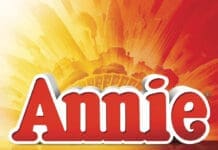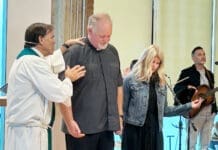By Dave Saviola, Arborbrook Financial
I recently came across a great message from Andy Stanley, senior pastor of North Point Community Church in Alpharetta, Ga., on YouTube from a few years back. Andy was talking around Thanksgiving and he said, “This week is the hinge point in the rhythm of American culture where we pivot from ‘Thankful For,’, to ‘I want more.’ From ‘Grateful’ to a ‘Cart-full.’ We spend one day being thankful and then we spend a month getting our fill.”
Wow, isn’t that true for many of us? It is all too common and a great deception of a culture in which we always seem to want more. In mostly subtle ways, we are constantly being fed messages in digital and print format to tell us about all the stuff we want—that we don’t even know we want. Even outside of things themselves, this “more and more” is a common mindset in school (where you often can earn a grade point average ABOVE perfect), business (if you’re not growing, you’re dying!), church, friend likes, followers, subscribers and the list goes on.
Unlike many of the other topics on money in the Bible, God’s word is consistent on the subject of being content, and there are two key messages. One, we are to be content in all circumstances. (That sounds super easy, doesn’t it?) The second is even better news: Contentment is something that we learn.
That latter part gives me great joy and hope, because at times, I find myself not doing very well with #1! That was a surprise for me, because I don’t consider myself materialistic; I generally do not buy the latest electronics, I drive a vehicle over 10 years old and I don’t spend much on new clothes. I thought, I’m pretty good at this contentment thing! Then I came across Paul’s letter to Timothy in which he said, “food and clothing is enough to make us content.”
Well, I desire A LOT more for me and my family than just food and clothes. So, where does that put me? Am I truly content when I have all these other possessions that have become so commonplace in the world, especially in the United States? Can I really teach my children to be content with literally just food and clothing?
The answer to this question, not surprisingly, is found in Psalm 73, which is said to be written by a man named Asaph. He may also have been the transcriber of king David’s words. But nevertheless, history seems to indicate Asaph was involved in this particular Psalm. In verse 25 he says, “And besides you, I desire nothing on earth.” Speaking of the Lord in this passage, Asaph is saying whether God gives us much more than we can imagine, or nothing at all, still our biggest desire is to love Him as He loves us and desire after Him above all things.
How can we be sure this is the key to contentment? The name Asaph in Hebrew means “gather,” and there are no coincidences. What better focus for us to have then on gathering the true riches God has for us, which are not the things of this world. When our eyes are fixed on that goal, our perspective on having or not-having suddenly becomes crystal clear, and that learned behavior of contentment is within reach.





























































